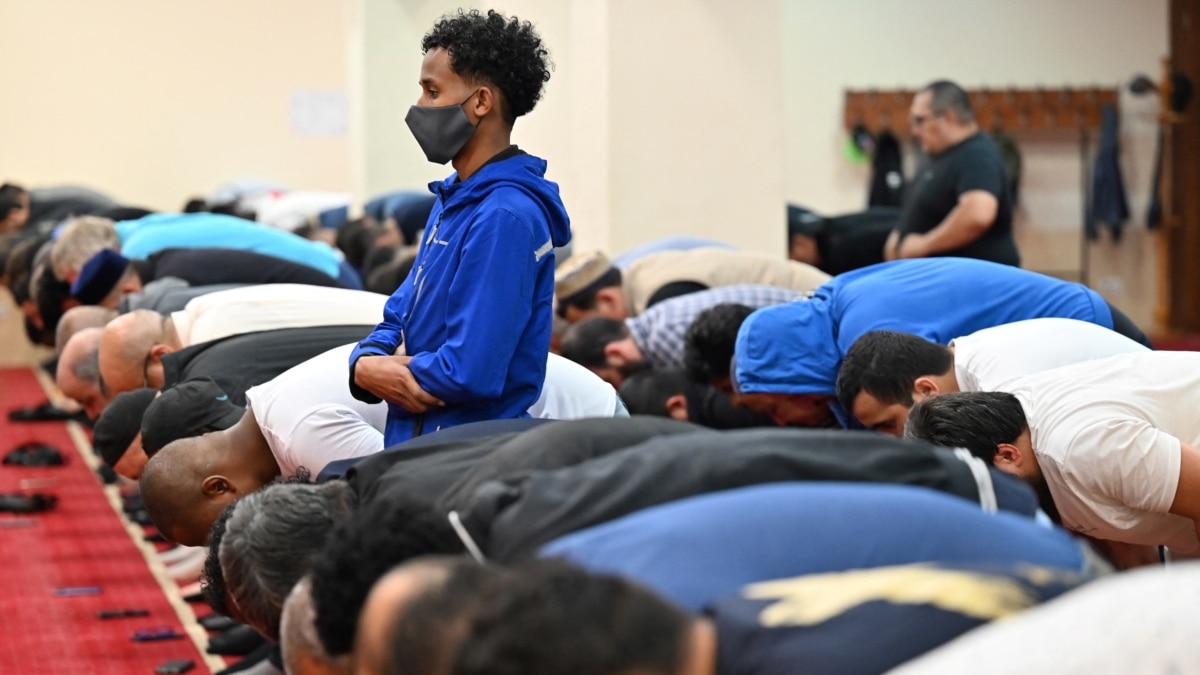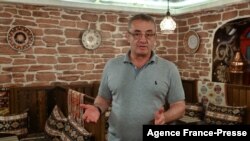Crimean exiles, Tatars struggle to start over in Ukraine
[ad_1]
Born in exile, Rustem Skybin returned to his ancestral homeland, Crimea in the mid-1990s, only to be uprooted – like his family before him – almost 20 years later.
The 45-year-old ceramic artist is one of thousands of ethnic Tatars who have fled Crimea for mainland Ukraine since 2014, when Moscow captured the peninsula and integrated it into Russia.
The Muslim minority opposed the takeover of Russia, fearing a repeat of Soviet-era repressions such as the massive deportations that drove Skybin’s relatives to Uzbekistan in Central Asia.
Today, many of those who flee say their fears of the Kremlin rule are confirmed.
“Looking back, they did everything to prevent our people from existing,” Skybin told AFP in his workshop filled with richly painted dishes in Kiev.
“And what they’re doing now doesn’t guarantee that will change. In fact, now there are repressions, political orders, imprisonments.”
Most of the roughly 300,000 Crimean Tatars boycotted a contested vote organized by Moscow in 2014 on integration with Russia.
The authorities severely cracked down on the Turkish minority after the takeover, banning its traditional assembly, the Mejlis, shutting down a Tatar TV station and detaining activists.
The arrest this month of deputy head of the Mejlis, Nariman Dzhelial, on charges of plotting to blow up a gas pipeline with several other activists was the latest shock to the besieged community.
“This situation has dealt a painful blow to families,†Skybin said of the crackdown and the exodus it caused.
The story repeats itself
Although he now has a stable life in Kiev, the capital of Ukraine, his mother and sister returned home and his marriage fell apart. Fearing for his safety, he has not visited Crimea since 2017.
“There are fewer and fewer opportunities to visit or cross the border. We all want to see each other and we are all separated from each other,” Skybin told AFP.
Russia, which has imprisoned more than 90 Tatars, has rejected claims that the arrests are politically motivated, saying they only targeted Islamists or pro-Kiev “terrorists”.
Speaking to Russian journalists this month, the head of a Tatar cultural society, Eyvaz Umerov, described Crimea as a “multi-ethnic” society where various groups live in “harmony”.
Yet the Kremlin regime has forced around 10% of Tatars to leave Crimea since 2014, an exodus that 33-year-old human rights activist Alim Aliev has described as a “brain drain”.
“The most active people have left: students, young specialists, businessmen, political and cultural figures and journalists,” said the co-founder of Crimea SOS, a non-governmental group.
It is a spell that many members of the community, which has lived on the peninsula for centuries, have repeated throughout their history.
After Czarist Russia took control of Crimea in 1783, hundreds of thousands of Tatars fled the peninsula to escape religious and political persecution.
Under Joseph Stalin, they were accused of collaboration with Nazi Germany and deported to Central Asia. Almost half died of starvation or disease.
They started to come back under Mikhail Gorbachev and became Ukrainian nationals after independence in 1991. Then came Russian annexation.
“Once again, people have been denied the opportunity to live in their homes or visit their homes,†Aliyev said.
Skybin, whose work borrows from Tatar ethnic motifs, saw parallels in his own flight with the forced displacement of his family in 1944.
“You leave your home and your belongings and head into the unknown,†he said. “What our grandparents told us, we experienced it ourselves.”
‘We will be back’
Tatars say they feel safe in Ukraine, but fear their children and grandchildren will forget their mother tongue.
Eskender Budzhurov, who was born in Uzbekistan and fled Crimea after the Moscow takeover, said Kiev had become a “second home” for him. But he deplores the lack of schools teaching in his mother tongue.
“I don’t even know how five to seven year olds will learn the language,” the 61-year-old said.
The Tatars say most Ukrainians have shown compassion to them and the country has enough mosques and halal food. This year, the government for the first time allocated funds for the promotion of Tatar culture.
Yet many dream of returning home.
“Our parents and grandparents waited 70 years to come back,†said Skybin, the ceramic artist. “And we too will be back.”
[ad_2]


